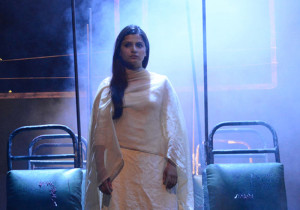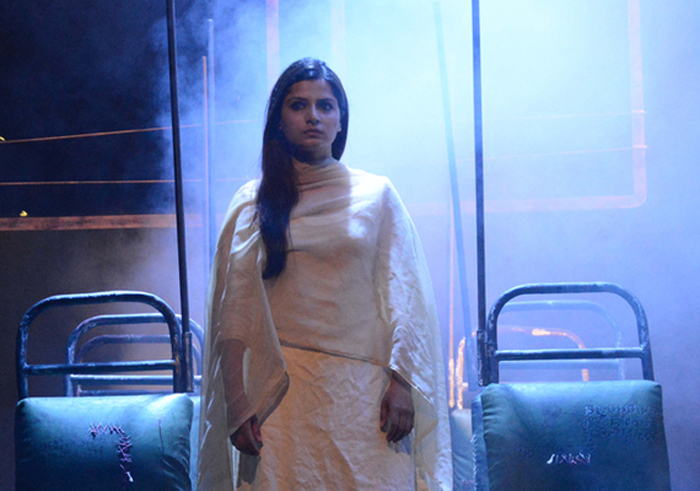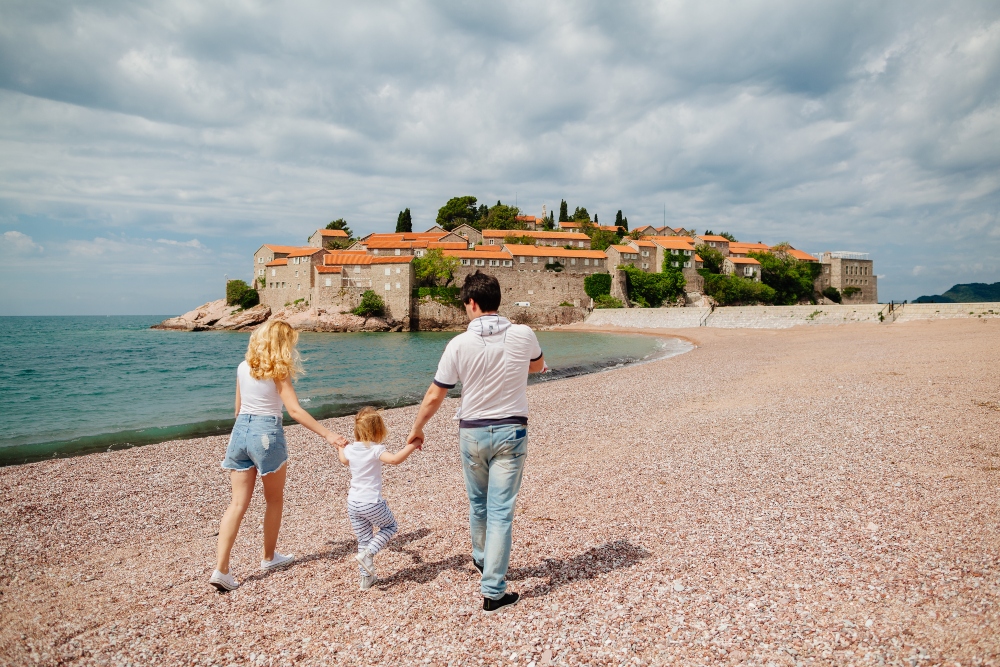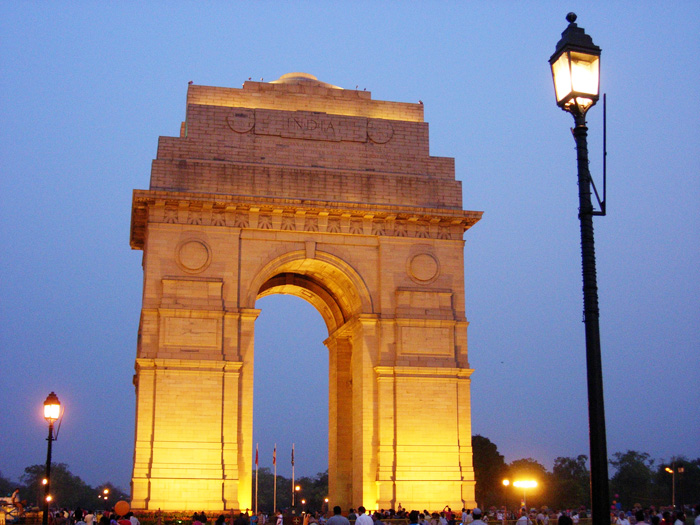Source: huffingtonpost.co.uk
“Hey sexy! Get on my bike for a fun time.” When that super-enticing offer was screeched at me by a mustachioed man in a too-tight polyester shirt, I was walking along Linking Road, in Mumbai, a congested artery that runs through the heart of the city; it is never silent, even at 3am. I thought about shouting back, but thinking this was just par for the course, I marched on to the bar where I was meeting my friends.
Any woman who has ever travelled in India has her fair share of such anecdotes, and while they’re always unpleasant, they’re rarely frightening – until now. India is gaining a notorious moniker as the rape capital of the world.
Read: Planning for Short Stay Apartments in London
Since the gang rape of a Delhi student in late 2012, the headlines about sexual assault in the country have been stomach-churning: the two teenage sisters in rural India who were raped and killed, and then hung from a mango tree near where they lived; the Danish tourist who was raped at knifepoint in Delhi’s backpacker hub; the Irish NGO volunteer raped in Kolkata.
These cases sparked intense discussion about India’s attitude to women, and what could be done to improve the situation. Yet women are now being told not to travel to India at all. This month, Japan and China have issued travel warnings to women after three Indians were arrested for allegedly gang raping a 22-year-old Japanese research scholar in Bodh Gaya, a Buddhist pilgrimage center in east India. One government-backed travel agency told India Today, “If you are female, even as a group, we advise you not to travel to India unless absolutely necessary”.
You might be surprised to learn then that Sweden’s rape incidence is 35 times higher that of India, which reports two rapes per 100,000 people. Rape statistics are some of the shakiest data around, however, since it tends to be one of the most under-reported crimes in the world. Nevertheless, declaring India a no-go zone for women seems fairly reactionary, and not entirely evidence-based, advice. No-one could argue that the threat of sexual assault in India is real, and sometimes brutal, yet sexual violence against women is endemic all over the world, including Europe and the USA. Focusing on brutal public assaults also takes attention away from the fact sexual violence against women is most often perpetrated by someone they know.
I’ve travelled all over India as a science reporter, and will continue to do so, taking the same precautions I always have. But do other women feel differently?
To find out, I asked a group of professional women who either live in India, or travel there often, how they feel about their safety in India. For some, it’s business as usual, but others have markedly changed the way they live their lives. What’s heartening though is that most women refuse to be cowed by the threat of violence. Women in India especially are taking a stand, says T.V. Padma, a Delhi journalist: “Assaulted women now seek justice by filing a complaint and bringing the culprit to book. There was a time the assaulted woman was blamed, rape was considered a ‘shame’ on the so-called family honour and the incident was hushed up. That is not so now.”
Here’s what they told me…
T.V. Padma, Journalist, New Delhi:
I travel alone most of the time. When it comes to visits to remote areas, because communication is better with local language and dialects, and there are cultural contexts that I may not know but should respect, I may seek the guidance of a local, but that has less to do with safety fears and more to do with logistics.
Delhi, sadly, is terrible when it comes to crime against women. So I take additional basic precautions in the city I live in, rather than other cities I visit. If it’s late, I always hire a pick-up from my trusted cab agency, even if costs me more, and even if they are unpunctual at times. The Delhi rape shook us up because it could have been any of us picked up in that bus that night. But everyone I know has continued with go about their day as usual.
The thing about India, and South Asia in general, is that the strong patriarchal system meant women were supposed to be home-bound, and so the public space was always the men’s domain. It is this public space that women in India are now claiming, whether it is to go out to study, work, or even just shop and enjoy a movie in peace.
The public space for women is expanding. Today, you have women attendants filling petrol at petrol stations, in call centres, airport security, metro stations, cab drivers, police – all of which call for late hours. Rapes will not deter women from exerting their rights or broadening their horizons.
Shaalu Wadhwa, Marketing Consultant, Mumbai:
I grew up in Delhi where groping, leching and scanning your body no matter what you wore is common. There is a huge difference here in Mumbai but it’s not like I haven’t been felt up. One evening in Bandra a guy on a bike hit me hard on my breast. He was trying to hold them but couldn’t. I was stunned not only with the pain but that this happened at early evening in a busy lane.
I felt violated and sick, and weirdly, a great a sense of personal shame. I do have fear now. I scan corners, study cab drivers… my faith is quite stirred. It’s also to do with the multitude of information flowing on social media, the TV and living room discussions. Everyday it seems someone is talking about the rape of a 5-year-old or a 50-year-old and it makes me ill to the point I don’t want to be informed anymore.
What unfortunately has happened is what I call the ‘terrorism fear psychosis’. The rapists have managed to take away my ability to be spontaneous or to believe there are normal good men on the street.
Renuka Kunzru, Screenwriter, Mumbai:
Is India unsafe for Western women? Answering this as an Indian is hard because there are so many things one has become desensitised towards. And answering this question for a westerner is even tougher because what constitutes sense of safety is so different in a westerner’s world.
I recently went to Australia. I travelled alone. I kept looking for evidence of racism because anti-India sentiments were in the news. I found none. Does this mean none exist? No. There are idiots in every country who do idiotic things. Yes, if you’re White or Black, you will be stared at in some parts of this country. This cuts across gender. This is because of utter unfamiliarity. But as long as tourists understand the country, its social sensitivities, and apply a basic degree of caution – the western woman is likely to have a pretty decent visit to India. But it’s probably a good idea to get used to the staring!
That said, I’ve turned into one of those people who don’t mind their own business when they see a woman get violated or slapped around – I run to help. And I’m happy to tell you that every time I’ve come to another woman’s rescue, everyone rallies around the woman. In the post-Delhi rape India, people have become more sensitive, and angry. So I still take cabs (even at 4am). I still go out wearing “ridiculous clothes” with nothing more than a stole as my anti-lech gear. Most women I know are not changing their lifestyle. If anything we’re becoming more “Don’t tell me, tell your son to change!”
Sarah Venis, Medical Editor, London:
I travelled around India, often on public transport on my own. There was one overnight bus I took where I was the only woman and the only westerner and I did get spooked when the bus guard came and made sure I was bolted into my mesh wire sleeping compartment, then moved my reservation to the front of the bus for safety.
In Delhi, I had to make sure I walked purposefully, the same way I would in Cairo, to convey that I wasn’t someone to mess with, but still got a bit of harassment, nothing serious, though there was a lot of talk about rapes in a central park and a lot of men would tell me about these for no apparent reason. Once I was in Mumbai, though, I felt totally relaxed and completely anonymous.
Apoorva Mandavilli, Science Writer, New York:
I think some parts of India, especially in the North, have always been a little unsafe for women to travel alone. The most recent cases have raised the profile of this issue, but I’m not convinced it’s any more unsafe than it was. When travelling here, I follow the same rules I do anywhere else where I don’t live. I’ve travelled alone all over the world, and I’d say with the exception of Sweden and Japan, every place had areas where I wanted to be accompanied or just avoided entirely. India is no exception.
Schona, Barrister, London:
I have travelled on and off in India for years, and have mostly experienced real courtesy and hospitality from men and women all over the country. I would say I have had far more safety issues in London, for example during the Carnival.
It would be churlish, however, not to recognise that India is a changing landscape in which modern and old are bumping into questions of identity, nationhood and gender at a furious rate. The difference between urban and rural life, and between haves and have-nots is growing at an exponential rate. Some people consider this may account for the growing number of reported rapes and sexual violence. It may also simply be that the media is more interested in reporting the phenomenon. The truth, however, may be more unpalatable.
Sexual violence in India has long formed part of the power struggle between those who have power, be it through gender, caste or status, and those who do not. Most sexual violence remains unreported and in rural life, far from the watchful media eye. Most tourists do not stumble across these scenes of misogyny and brutality in India, preferring a tranquil image of the country as a source of spirituality.
But none of that makes India an inherently unsafe place to visit. One needs to understand that it is more violent than Gandhi would have wished, and less violent than the current media depiction. It’s a messy reality, but not evidently more or less unsafe for women travellers than it ever has been. It’s unwise to generalise about a country that holds over a billion people, from so many backgrounds and so many views.
Hasiba Rehman, Marketing Manager, London:
I grew up watching Bollywood films and seeing all the rape scenes and feeling confused, it seemed normalised, glamourised even..There was always a beautiful heroine attacked by a revolting villain, revenge ensued and everyone lived happily ever after – especially the heroine. I think Bollywood has a part to play in how sexual attacks are seen by some Indian men.
Last year (just after the Delhi rape) I applied for a job in Delhi. Naturally my friends and family thought I was crazy, but for me the romance with India was and is still there. During the interview process I was talking to a guy who has always lived in Delhi, and I raised my safety concerns to him. He said after the Delhi rape India received a lot of bad press and was being singled out in the media as the highest risk place for women to live. Rapes happen all over the world, so why only talk about India? His advice was simple – be streetwise and don’t go anywhere alone at night.
For me India is not a country that outranks others when it comes to safety for women. The problem is not the entire male population of India, its a few twisted individuals who give others a bad name. Kind of like Muslim terrorists who’ve negatively impacted the global Muslim community.
Anonymous, Surgeon, Oxford:
I think there is definitely increased reporting which is good as recognition of significant problem. I take no extra precautions travelling in India then I do anywhere else in the world, and i certainly won’t travel there any less. I think you just have to be mindful of your environment as you would anywhere else in the world.
Sharon Guynup, Journalist, New Jersey:
I’ve worked in India six times since 2006; increasingly, my fixers, colleagues and friends have emphasized safety measures which often included being accompanied by others (men) and in some situations, traveling with a car and driver rather than on public transportation. As a writer/photographer, I’ve chafed against these recommendations–but have trusted resident’s warnings–and had phenomenal experiences in this amazing country.
Meera Subramanian, Journalist, USA:
Women in India as elsewhere, will continue to move through a world where they have to be vigilant about their safety while also remaining psychically open to people and experiences, but retreating from the public sphere, whether at home or when traveling abroad, is not an option.
Image credit: Nirbhaya/Sick Festival




